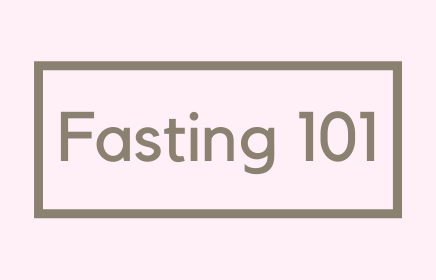Josh and I discussed fasting on the Bowmar Show last year and it is our most popular podcast. For my visual learners, we wanted to get the content out there on the blog as well. You can listen to the Bowmar Show on all major podcast platforms!
Fasting 101
You start seeing benefits from fasting around the 16-hour mark. There are only two states in fasting: a fasting state and a fed state. You can’t eat anything during the fasting state, zero calories. The number of calories you consume during your fed state is the same whether you have an 8-hour feeding window or a 12-hour feeding window. This can be an awesome way to start dieting, it is much harder to overeat with a shorter feeding window, although not impossible.
Different Types
For shorter fasting or intermittent fasting (IF), there are many benefits. The first is body recomposition or fat loss because, again, it is harder to overeat in a shorter feeding window. Plus, studies have shown that training fasted can also help with fat loss. Another benefit is more mental clarity. When you aren’t using energy to digest food, that can be channeled into other things for your brain and get rid of brain inflammation. IF is also helpful if you are glucose-dependent (carb dependent, you consume carbs throughout the day) because you are using glucose for your energy throughout the day. So, if you fast, your body will have to start using fat for energy. This may not feel good when you first start doing IF, but you should eventually adjust. One tip for first starting IF is to have your last meal before the fast be higher in fiber, fat, and protein because you will feel fuller longer. This can be done as frequently or infrequently as you see fit.
The next type of fast is a prolonged fast (20-48 hours). At the 20 hour mark is when you get cellular autophagy kicking in, or when your healthy cells break down the damaged/old cells for energy. This can help you age slower, have higher mental clarity, heal, and improve vascular functions (the way you look and feel, hair, skin, nails). This should be done about once a month, not much more frequent than that.
Tips
It is not recommended that you start with a prolonged fast if you have never fasted before. You should start with a 14 or 16-hour fast and work your way up because of any “side effects” you may experience. If you go beyond a 48-hour fast, people do that for the stem cells and their excessive healing. This is not recommended for any “general” fitness reasons only if it is doctor recommended for an injury or religious reasons.
So, what can you have during a fast? Water, black coffee, and tea. Pre-workout, greens, and EAAs are in what we call the “gray area.” We would not recommend having any of these supplements if you are going for the cellular autophagy benefits. However, if you are fasting for body composition reasons, we think having these supplements would be okay since you are not spiking your insulin.
And Then What?
What do you break your fast with? You should break it with protein or fat so that your body will burn fat for its energy. Try to avoid eating fat and carbs together. The way Josh breaks his fast is through eating bone broth, collagen, or fiber. Try to avoid eating again for another hour after this so that you avoid overeating.
When should I take my supplements? I personally recommend taking them during a fed state because I don’t feel the greatest when I take pills on an empty stomach. As far as Bowmar Nutrition goes, most of our supplements, including some pills, will break your fast besides those previously mentioned. Anything that has calories will break your fast, even if it is liquid.
When should I work out if I am doing IF? We personally, work out first thing in the morning while we are in our fasted state. This requires your body to use food from the day before for energy. There are different benefits to working out at different times of the day, but we recommend working out first thing if possible.
Another type of fast is a liquid fast. This is where you are still consuming calories, but only in liquid form. This helps your digestive system take a break. However, we have never done this and do not feel like it is essential. You will get this benefit also while doing IF.
There is also a fast called dry fasting, which we have never done. This is when you have no food and no water. This should only be done once a year if at all unless it is for religious reasons. The only benefit would be burning a little more fat because your body would be making its own water from your fat cells.
We love utilizing IF when we travel. We will do it almost every day. One reason is that on travel days it saves money, but also it isn’t fun to eat at 4 A.M. then 7 then 9, etc. This will also save calories.
The only time daily IF isn’t going to be the greatest is if you are trying to build a lot of muscle. You will have fewer protein spikes if you are skipping a meal. Also, if you are only eating two meals, it would be very difficult to get the grams of protein in that you need for your muscles for maximum growth.
Supplements
Which supplements can be used during a fast? It depends on if you are fasting for fat loss or cellular autophagy! If fasting for cellular autophagy- stick to water and black coffee. If you are fasting for fat loss, you can still use things like MELT, SHARP, PRE, etc.
It’s also recommended to not take a ton of pills while fasting as it may upset your stomach!












0 Comments